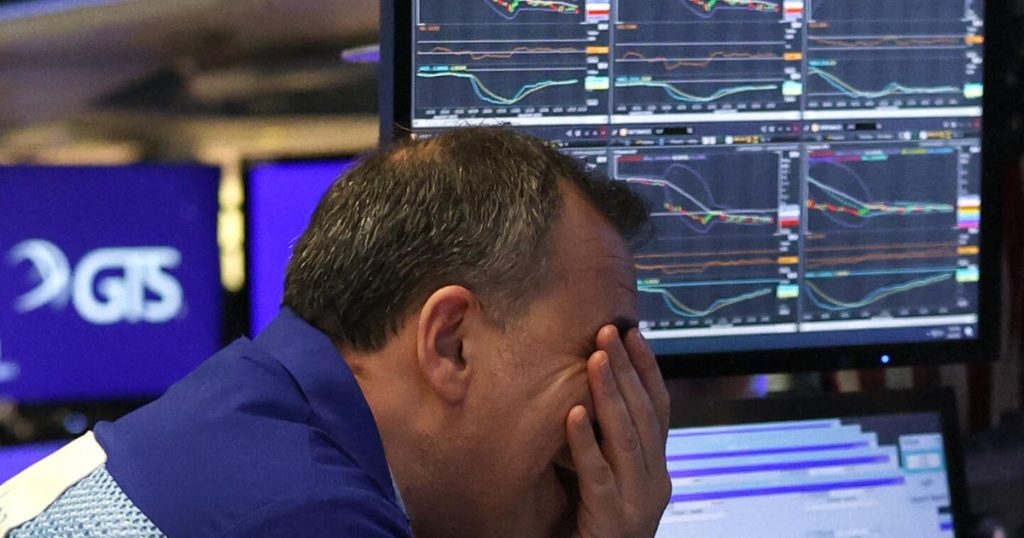Financial markets wrapped up a turbulent week with a significant decline, as stocks plummeted for the second consecutive day amid worries about the economic repercussions of newly imposed U.S. tariffs and the potential for a global trade conflict.
President Trump’s declaration of dramatic tariffs on Wednesday surprised investors and prompted economists to lower their forecasts for U.S. economic growth. Jerome Powell, the Chair of the Federal Reserve, cautioned that the tariffs—which include a 10% blanket duty on all U.S. imports and “reciprocal” taxes affecting nearly 90 nations—might negatively impact the economy.
“While uncertainty remains high, it is becoming increasingly clear that the rise in tariffs will be more substantial than expected,” Powell stated in a speech on Friday in Arlington, Virginia. “The economic repercussions are likely to include increased inflation and a slowdown in growth.”
The S&P 500 index dropped 322 points, or almost 6%, closing at 5,074, marking its largest one-day drop since March 16, 2020. This decline erased $2.7 trillion in market capitalization, reversing stock market gains from over the past year and bringing the S&P back to its levels from February 2024.
The Dow Jones Industrial Average fell by 2,231 points, or 5.5%, and has decreased by 14% since reaching its peak in February. The tech-heavy Nasdaq Composite fell by 963 points, or 5.8%, officially entering bear market territory, defined as a 20% drop from its recent high.
Tech stocks have struggled this week due to fears that U.S. tariffs on China, along with retaliatory measures from China, could significantly harm the high-tech sector, which has played a crucial role in driving corporate earnings.
Solita Marcelli, the chief investment officer at UBS Global Wealth Management, warned clients that the U.S. might face a recession later this year unless tariffs are reduced. “In the short term, we anticipate that effective tariff rates could be even higher, and unless President Trump takes proactive measures to lower tariffs in the next three to six months, we may enter a downturn that includes a significant U.S. recession and falling equity markets,” she stated in a research note.



